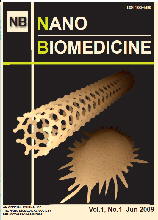Synopsis
Dental metals have toxic effects on human development, including the high toxicity of the constituent element vanadium of the standard product ASTM F136,
i.e., the medical titanium material of the Ti-6Al-4V alloy used in dental implants for its mechanical strength due to the use of a large amount of pure Ti. In addition, the corrosion of pure Ti and Ti alloy implants due to fluorides in the oral cavity is a problem. Elution of the constituent element vanadium due to corrosion may have toxic effects on development. Therefore, each element composing Ti-6Al-4V was examined in an in vitro embryotoxicity test by the Embryonic Stem Cell Test (EST) protocol. As a result, only vanadium had a risk of embryotoxicity. In addition, the Ti-6Al-4V alloy was corroded with hydrofluoric acid to examine its effects on the differentiation of mouse-derived ES and iPS cells, and was found to affect the differentiation of both cell types.
Key words: Ti-6Al-4V, corroded, hydrofluoric acid, embryotoxicity, EST
All documents in this paper (Free)
J-Stage
https://www.jstage.jst.go.jp/article/nano/11/1/11_nano11_29/_article/-char/en
DOI
https://doi.org/10.11344/nano.11.29
